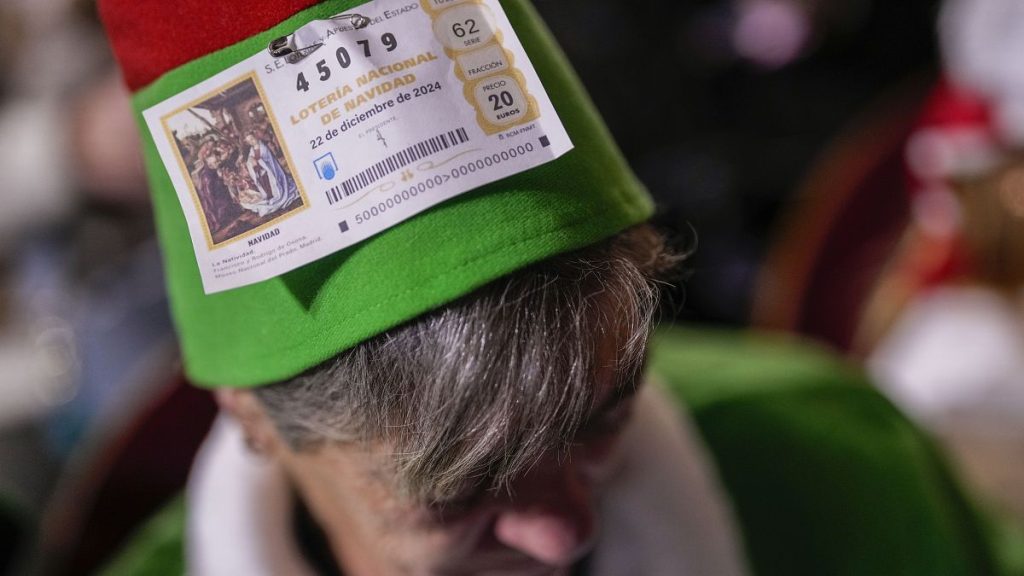The Spanish Christmas Lottery, affectionately known as “El Gordo” or “The Fat One,” is a deeply ingrained cultural tradition dating back to 1812, during the tumultuous era of the Napoleonic Wars. This annual spectacle, held on December 22nd, has unfolded almost uninterrupted for over two centuries, solidifying its status as the world’s longest-running lottery. While other lotteries may boast larger individual jackpots, El Gordo distinguishes itself through the sheer magnitude of its total prize pool, distributing an impressive €2.7 billion in winnings this year alone. This emphasizes the lottery’s fundamental principle of spreading prosperity across a vast swathe of participants, fostering a sense of shared hope and collective anticipation during the festive season.
The heart of the El Gordo tradition lies not solely in the pursuit of fortune, but in the communal experience it cultivates. The lottery’s structure is ingeniously designed to maximize the distribution of winnings, with hundreds of smaller prizes alongside 13 major ones, culminating in the coveted “El Gordo” jackpot. This year, the grand prize of €400,000 (before taxes) was shared among multiple ticket holders bearing the lucky number 72480, primarily sold in Logroño, a picturesque city in northern Spain renowned for its exquisite wines. The practice of dividing full tickets into ten fractions, known as “décimos,” further amplifies the lottery’s reach and reinforces its social dimension. Families, friends, and colleagues routinely pool their resources to purchase décimos, each contributing a modest €20, transforming the lottery into a shared venture and a symbol of collective aspiration.
The dramatic culmination of weeks of anticipation occurs in Madrid’s Teatro Real opera house, where the drawing ceremony is held. The captivating ritual, broadcast live across the nation, features students from the San Ildefonso school, a tradition maintained since the lottery’s inception. These young voices meticulously select numbered balls from two revolving orbs, their rhythmic chanting of the winning numbers a familiar and comforting sound to Spaniards everywhere. The atmosphere within the opera house is electric, with audience members often attired in elaborate costumes, ranging from literary icons like Don Quixote to festive elves and even personifications of the lottery itself. This vibrant display of enthusiasm and playful theatricality adds another layer of enchantment to the already captivating event.
The story of María Ángeles, a teacher who journeyed from the southwestern province of Badajoz with a group of 14 friends and family members to witness the draw firsthand, encapsulates the spirit of El Gordo. Despite waiting hours in line to secure a seat within the opera house, and despite her group’s modest winnings (no one won more than €140), María Ángeles highlighted the essence of the experience: “The point of coming to see the lottery is the hope.” This sentiment underscores the lottery’s broader significance, transcending mere monetary gain. It represents a shared dream, a collective moment of anticipation, and a celebration of community during the Christmas season.
The enduring popularity of El Gordo is further evidenced by the long queues that form outside lottery offices in the weeks leading up to the draw, particularly those with a reputation for selling winning tickets in previous years. This annual pilgrimage speaks to the lottery’s deep roots in Spanish culture, its ability to unite people from all walks of life in a shared pursuit of fortune, however fleeting. The lottery’s origins as a charitable initiative, first established in 1763 by King Carlos III, further enhances its appeal. While it later served to bolster state finances, the lottery continues to support various charitable causes, adding another layer of meaning to the festive tradition.
El Gordo transcends the simple mechanics of a lottery. It embodies a cherished tradition, a collective ritual, and a potent symbol of hope and shared experience. The lottery’s ability to weave itself into the fabric of Spanish society, uniting communities and families in a shared moment of anticipation and excitement, underscores its enduring appeal and its unique place in the cultural landscape of Spain. From the meticulously orchestrated drawing ceremony to the widespread practice of sharing décimos, El Gordo epitomizes the spirit of unity and collective celebration that defines the Christmas season.

